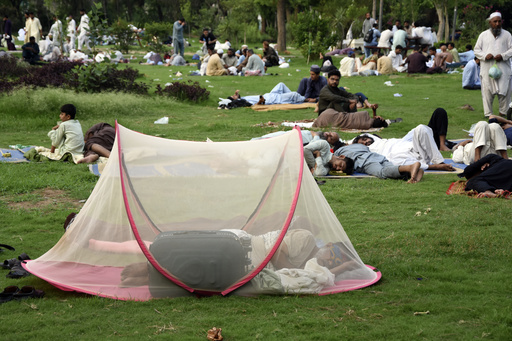Protests erupted in Pakistan over the high cost of electricity bills, causing a major road into Islamabad to be blocked by around 3,000 supporters of an Islamist party. The demonstrators have been staging a sit-in in Rawalpindi, demanding the government remove taxes on electricity to mitigate price hikes. Despite heavy monsoon rains, the protesters have vowed to continue their demonstration until their demands are met, expressing frustration over the steep increases in electricity bills.
Displaying the flags of the Jamaat-e-Islami party, protesters have been vocal in their opposition to what they describe as an unreasonable surge in electricity prices. The government has engaged in discussions with protest leaders but has not shown any inclination to accede to their requests. Leading the demonstrations is Naeem-ur-Rehman, the head of Jamaat-e-Islami, who reiterated their readiness to persist with the protests for as long as necessary.
The government’s decision to raise power tariffs by 26% in the previous fiscal year, followed by an additional 20% hike on July 13, was attributed to meeting conditions set by the International Monetary Fund for a $7 billion loan agreement established earlier in the month. Adding to the burden, multiple taxes have been imposed on top of the increased base price, resulting in electricity bills more than doubling for some citizens, leading to financial strain and hardships for many households.
Citizens across various cities in Pakistan, including Lahore and Peshawar, have expressed their distress over the soaring electricity bills, with some contemplating selling assets or taking loans to cover the expenses. Economists point to historical agreements made in the 1990s to purchase power from private entities at inflated prices as contributing to the current expensive power tariffs. To alleviate the financial strain, experts suggest transitioning to solar power systems, a move that an increasing number of Pakistanis have been adopting to combat high bills and power shortages.
The widespread discontent over the escalating electricity bills underscores a growing economic challenge facing many Pakistanis, with the situation exacerbated by the recent price hikes and taxation policies. As the protests persist and citizens seek ways to mitigate the financial impact, concerns loom over the potential consequences of the prevailing economic conditions on households and businesses in the country.
